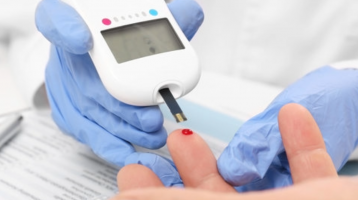Certain hormones are responsible for making us feel full or hungry, and serve as key neurotransmitters within our bodies. They are released at different times of day or night, in a rhythm determined in advance. However, this release is affected by the time and composition of meals.
The most important hormones for controlling our eating patterns are ghrelin, leptin, cortisol, and insulin.
Hungry? This is due to the hormone ghrelin, which reminds you every five to six hours during the day that you need to ingest some food. Its level drops in no time after eating, and then it starts sending signals again five to six hours later. If you have eaten a meal very rich in protein, ghrelin levels fall more quickly and take longer to rise back up. This means that if you have a protein-rich dinner, you will not feel hungry again until the early morning, which is good for keeping your figure in the long term. The recommendation to more frequently include fish (a key source of protein) in your evening meals is therefore not without reason. 14 to 16 hours of fasting can also help to reinforce or re-establish this release schedule – an effect that intermittent fasting and the Chronodiet try to put to good use.
When we are full, another hormone comes into play: leptin. This appetite suppressant reaches its highest levels between midnight and the early hours of the morning – another reason why we do not wake up at night feeling hungry. For the full effect, your last protein-rich meal should preferably be six to eight hours before midnight – another rule of thumb that we have already mentioned for intermittent fasting and the Chronodiet.
Another important hormone is cortisol, which promotes fat metabolism and regulates our carbohydrate balance. Cortisol levels are highest in the early morning and lowest in the evening and overnight. The Chronodiet takes this biological rhythm into account: carbohydrates are permitted in the morning, as at this time of day cortisol ensures that our bodies are able to process them properly. Evenings and overnight are a different matter! Carbohydrates are disruptive during these hours, as they cause insulin spikes that disturb all of our natural rhythms.
Insulin, the hormone that comes from our pancreas, is released three times a day: early in the morning, in the middle of the day, and in the evening – in other words, at the three main mealtimes. Insulin ensures that what we eat at these times of day is transported into our cells as energy and nutrients. If too much insulin is produced (something which is governed by the type of food you eat), the surplus – in other words, the energy that is not channeled into cells – is stored as fat deposits.
Recent findings have also shown that the morning insulin peak has a particularly positive effect on the lunchtime and evening releases. If this morning trigger is missing, for example if we skip breakfast, then the other meals will not be digested as well as they could be. The result: the energy contained in your food mostly becomes fat deposits.
As well as this daily schedule of releases, insulin is also released in between: whenever we munch on a supposedly healthy granola bar, a piece of fruit, or a little piece of chocolate. The energy they contain is then immediately stored as fat deposits.




